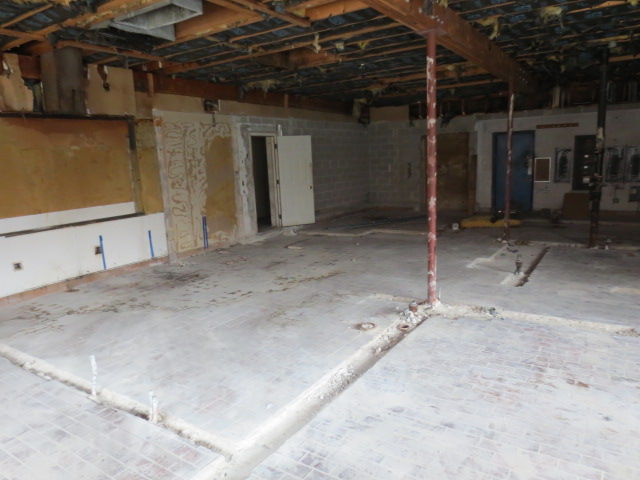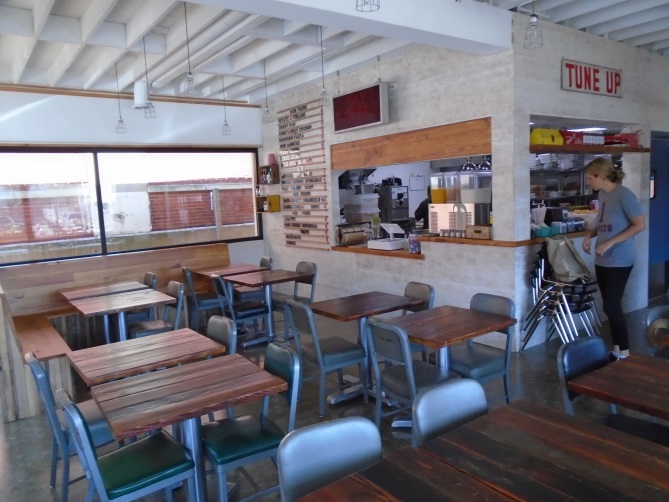One of the goals of Mayor Emanuel's Retail Thrive Zones program is improving the effectiveness and accessibility of economic development incentives. In many cases, small businesses or property owners are unable to easily secure these incentives.
Starting with the "Class 7" property tax abatement, this website will allow small businesses and property owners in Retail Thrive Zones to quickly and easily determine if they are eligible for different incentives.
If you are eligible, you will be able to apply for the incentive directly through this site – a process that will expedite the application with the City and the County.
To determine your eligibility, Browse Zones to see if your location is in a Retail Thrive Zone and qualified for the Class 7 Incentive.
To learn more about the Retail Thrive Zones program and how you can apply for up to $250,000 in small business grants, just reach out to City staff by sending an email to thrivezones@cityofchicago.org!
The Class 7 Program is a property tax incentive that encourages the growth of the City’s commercial corridors. Business or property owners who undertake a significant rehabilitation of existing buildings or the construction of new buildings are potentially eligible to have their property tax bill reduced by as much as 60 percent over the next twelve years.
There are three different categories of Class 7 incentives: 7a, 7b, and 7c. While each is slightly different, they all provide a similar benefit: lowering the tax assessment rate applied to the value of your property from the standard 25 percent. For most redevelopment projects located in Retail Thrive Zones, the Class 7a incentive is the best option.
| 7a/b Abatement period | 7c Abatement period | Assessment level |
|---|---|---|
| Years 1-10 | Years 1-3 | 10% assessment level |
| Year 11 | Year 4 | 15% assessment level |
| Year 12 | Year 5 | 20% assessment level |
For Class 7a: Applicants invest in projects with a total cost of less than $2 million, to have their tax bill reduced for 12 years.
For Class 7b: Applicants do larger redevelopment or new construction projects with a total cost of greater than $2 million, to have their tax bill reduced for 12 years (same as 7a).
For Class 7c: Existing, successful businesses and properties reinvest in or improve their buildings, to have their tax bill reduced for a shorter, 5-year period, which can be extended to 10 years. There is no project cost minimum for Class 7c.
Class 7 projects must meet specific criteria. For all Class 7a, 7b, and 7c projects, this includes:
The application available on this website will prompt you for the information we need to show that your project meets the criteria. There is also some tax analysis about the property and the surrounding area that is required for the Class 7 application, but we have done that work for you already, as part of the Retail Thrive Zones program.
See if your location is eligible and apply for the Class 7 Tax Incentive


Before and after the Small Business Improvement Fund.
The Mayor's Small Business Improvement Fund provides grants that reimburse the costs of repairing or remodeling commercial property. Funds may be used to reimburse the costs of rehabbing commercial buildings, including structural repairs and improvements to roofs, facades, and plumbing, electrical or HVAC systems.
In response to community feedback, we have created a special Small Business Improvement Fund program for Retail Thrive Zone businesses, tailored to the unique needs of businesses and property owners in economically challenged corridors. These Thrive Zones small business grants offer greater financial assistance, up to $250,000, and the City has identified lending partners to provide front-funding in order to make the grants more accessible.
Thrive Zone small business grants can cover up to 75 percent of eligible costs. Funds are paid as a reimbursement after completion of the project. Applicants that need assistance with financing the work are encouraged to contact lenders that are a part of the new Bridge Loan Program.
The application process for business grants in the South Shore Thrive Zone is opening soon!
Learn more about the Small Business Improvement Fund for Thrive Zones
In 2016, Mayor Rahm Emanuel implemented reforms to the City’s Zoning Code in order to ensure that the growth of downtown drives equitable development throughout the City. These changes leverage new development in and around the Loop to generate funds that will catalyze investment on Chicago’s West, Southwest and South Sides.
The Neighborhood Opportunity Fund receives funds from that downtown development in order to support commercial corridors in Chicago’s underserved neighborhoods. Business and property owners may apply for grant funding that will pay for the development or rehabilitation of real estate and projects that support new or expanding businesses or cultural assets. Any property that is located in a Retail Thrive Zone is also geographically eligible for Neighborhood Opportunity Fund assistance.
Applications for the Neighborhood Opportunity Fund are not currently being accepted. The next application window is scheduled to open in Fall 2017.
Learn more and apply for the Neighborhood Opportunity FundThe Enterprise Zone program was created in order to stimulate economic growth and neighborhood revitalization in distressed communities. There are six designated Enterprise Zones in Chicago, generally located on the south and west sides.
The primary benefit of the Enterprise Zone program is a sales tax exemption on all building materials needed for a commercial redevelopment project. In many cases, this benefit can be significant, up to a ten percent savings on the total cost of materials. Larger projects may also qualify for additional incentives, such as sales tax exemptions for equipment and utilities, but must meet certain eligibility criteria.
Many of Mayor Emanuel’s Retail Thrive Zones are located within Enterprise Zones. Search for your property on our map and look for an Enterprise Zones eligibility badge to see if your Thrive Zone property qualifies.
Mayor Emanuel’s Retail Thrive Zones will help local economic development with an evolving package of assistance to entrepreneurs and businesses, including:
Future benefits will include targeted action against dilapidated, vacant buildings, access to Neighborhood Opportunity Fund grants, educational and professional service support for local entrepreneurs, and more.